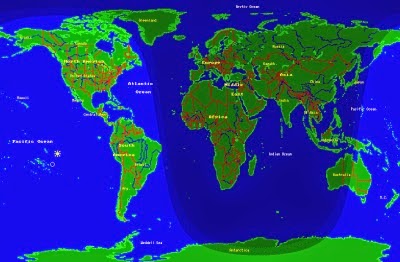Product: Weekly Highlights and Forecasts
:Issued: 2014 Dec 01 0611 UTC
# Prepared by the US Dept. of Commerce, NOAA, Space Weather Prediction Center
# Product description and SWPC web contact www.swpc.noaa.gov/weekly.html
#
# Weekly Highlights and Forecasts
#
Highlights of Solar and Geomagnetic Activity 24 - 30 November 2014
Solar activity was at low levels through the period. Both Regions 2222 (S20, L=083, class/area Ekc/680 on 30 November) and 2219 (N04, L=160, class/area Dko/300 on 30 November) produced the majority of the C-class flare activity. The largest flares of the period were a C8/1f at 27/0047 UTC and a C7/Sf at 28/0040 UTC, both from Region 2222. Region 2219 emerged on the visible disk on 24 November and continued to show growth in area and magnetic complexity until the
latter half of 30 November. Region 2222 rotated onto the SE limb on 26 November and showed slight to moderate growth throughout the period. No Earth-directed coronal mass ejections were observed.
No proton events were observed at geosynchronous orbit.
The greater than 2 MeV electron flux at geosynchronous orbit was normal to moderate levels throughout the period.
Geomagnetic field activity was at quiet to unsettled levels. Quiet conditions were observed on 25-26 November and again on 29 November. Isolated unsettled conditions were observed on 24 and 27-28
November. Solar wind parameters were at nominal levels through 27 November with solar wind speeds in decline from approximately 400 km/s to a low near 290 km/s. A solar sector boundary crossing from a positive (away) into a negative (towards) sector was observed at approximately 27/0241 UTC. Total field increased thereafter to a maximum of 13 nT after midday on 28 November while solar wind speed showed a steady increase from 29 November through the end of the period. Solar wind speeds ended the period slightly enhanced around 430 km/s. The geomagnetic field responded with unsettled levels to end the period on 30 November.
Forecast of Solar and Geomagnetic Activity 01 December - 27 December 2014
Solar activity is expected to be at low levels with a chance for M-class flaring (R1-R2, Minor-Moderate) and a slight chance for an X-class flare (R3-Strong or greater) for the forecast period as
Region 2222 rotates across the visible disk as well as the return of old Region 2209 (S13, L=251) on 08 December.
A slight chance for a greater than 10 MeV proton event above the S1 (Minor) threshold exists from 04-10 December due to potential significant flare activity from Region 2222 as it rotates into a
better connected location.
The greater than 2 MeV electron flux at geosynchronous orbit is expected to reach high levels on 02-04 and again on 13-22 December due to coronal hole high speed stream (CH HSS) influence.
Geomagnetic field activity is expected to be quiet to unsettled levels with active periods possible on 01-02, 11-15, and again from 17-20 December due to recurrent CH HSS activity.
Product: 27-day Space Weather Outlook Table 27DO.txt
:Issued: 2014 Dec 01 0611 UTC
# Prepared by the US Dept. of Commerce, NOAA, Space Weather Prediction Center
# Product description and SWPC web contact www.swpc.noaa.gov/wwire.html
#
# 27-day Space Weather Outlook Table
# Issued 2014-12-01
#
# UTC Radio Flux Planetary Largest
# Date 10.7 cm A Index Kp Index
2014 Dec 01 180 15 4
2014 Dec 02 180 12 4
2014 Dec 03 180 8 3
2014 Dec 04 170 8 3
2014 Dec 05 170 5 2
2014 Dec 06 165 5 2
2014 Dec 07 160 5 2
2014 Dec 08 170 5 2
2014 Dec 09 175 5 2
2014 Dec 10 180 5 2
2014 Dec 11 180 10 3
2014 Dec 12 180 15 4
2014 Dec 13 180 20 4
2014 Dec 14 180 10 3
2014 Dec 15 185 10 3
2014 Dec 16 185 8 3
2014 Dec 17 185 10 3
2014 Dec 18 185 12 4
2014 Dec 19 185 10 3
2014 Dec 20 170 10 3
2014 Dec 21 170 8 3
2014 Dec 22 170 5 2
2014 Dec 23 170 5 2
2014 Dec 24 175 5 2
2014 Dec 25 175 5 2
2014 Dec 26 175 5 2
2014 Dec 27 175 5 2
(NOAA)

